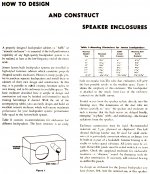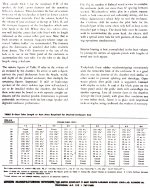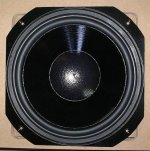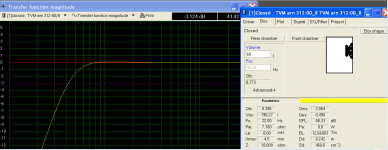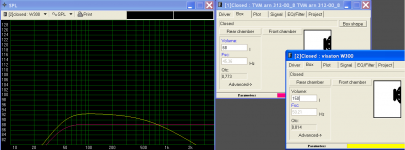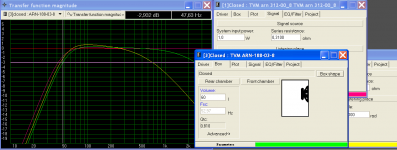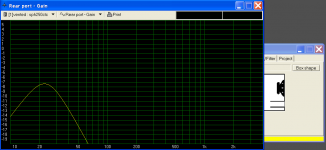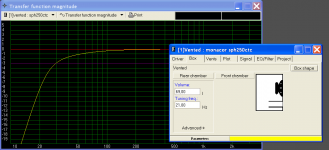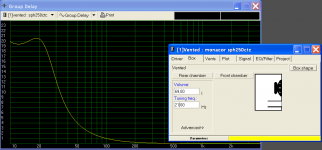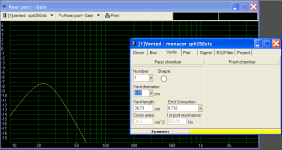are we talking a.s. Or just sealed
in general i would agree that any driver is transiently better in a sealed box. Group delay is at a minimum vs any other alignment, and the shallower rolloff a huge bonus to room neutrality. Even an 3rd order vented system suffers due to the non optimal tuning, even if the resultant fr matches the room better. Vented systems became repopularised by manufacturing cost cutting. Just as with low power valve amps a few decades ago. Hi eff driver with consequently hi fs benefits from the extra extension vented design gives. Theil and small made easy design simple. Speaker tech has moved forward bt the forward thinking of the 70s has gone, theyre all micromanaged to the last penny
in general i would agree that any driver is transiently better in a sealed box. Group delay is at a minimum vs any other alignment, and the shallower rolloff a huge bonus to room neutrality. Even an 3rd order vented system suffers due to the non optimal tuning, even if the resultant fr matches the room better. Vented systems became repopularised by manufacturing cost cutting. Just as with low power valve amps a few decades ago. Hi eff driver with consequently hi fs benefits from the extra extension vented design gives. Theil and small made easy design simple. Speaker tech has moved forward bt the forward thinking of the 70s has gone, theyre all micromanaged to the last penny
Pete,
The linear motion of a driver is pretty much determined by the spider with a bit of help from the surround. In an Acoustic Suspension box the air spring provides the damping.
Best Regards,
TerryO
You are right, I should have said that the spider and surround produce the restoring force with the spider producing most of the restoring force. But I would disagree that the air spring provides damping. As I said in the post that you quoted, the idea behind the acoustic suspension method was to supplement the restoring force of (mostly) the spider with that of the air spring. "Air spring" is the right idea- the cone of the driver stores energy in the air spring (the restoring force) alternately compressing and expanding it.
Regards,
Pete
Thanks for the explanation Dave.In efficiency constant terms it is true that a vented box can be smaller for a given efficiency and cutoff but...if you take a given woofer and model the ideal sealed and the ideal vented cabs for it you will find the vented cabinet will be approx twice the size.
It takes a lot of driver changes to achieve the smaller vented box with same sensitivity and cutoff, primarily heavier cone and much bigger magnet.
Regarding the AR's, I always felt their invention was not to have high alpha, i.e. Acoustic Suspension, (RCA had published papers about that previous to the AR patent) but they were the first company willing to pile on the mass and give up sensitivity to achieve deep bass in a relatively small cabinet.
David S.
The last time I built a pair of speakers was 1983 during my senior year of high school and that was an RS kit - page 57 (fyi there is a misprint: the mid driver's xover was actually 900Hz, not 2,000) - though I did have to figure out the enclosure volume and port dimensions because I thought the included design for a 2 cu/ft sealed design wasn't exciting enough. 🙄 Strangely enough, the next year I bought a pair of Advent "Babys", which I think was that company's first use of a 6.5" woofer.*
So if it ever seems like I'm "stuck in the past" as far as speaker theory that is part of the reason. 😱 But I am trying to catch up, though I am still very much interested in vintage audio gear. I do own a multichannel system equipped with relatively modern speakers, 1998 through 2004 to be exact, along with a Pioneer hi-res player and a decent sized collection of 96/24 and 192/24 recordings.
* my RS speakers ended up standing exactly 4ft tall, 18" wide and 14" deep and weighed 80lbs apiece - not exactly dorm room friendly if you know what I mean!
Wow, some speaker! Can that little vent handle that 18" behemoth? Or, are there more ports elsewhere?
That is the only one. Was actually for 15 inch woofer, but never changed the port. The design was from old Jensen paper.
Attachments
You mean horns like this? 🙂 While a stunning piece of gear, even I would have to admit that would be difficult to accomodate for most people, which back then probably was one reason owning a "hi-fi system" for many people wasn't practical.The AR's were much smaller than the large horns, etc., that were "the standard" for deep bass at the time.
Semi-related to this discussion: for other multichannel fans who had questions about xovers for sat+sub systems, this 2005 article might interest them which discusses, among other things, THX specs and acoustic+electrical slopes:
"Bass Management Woes: Trouble on the Slopes"
"Bass Management Woes: Trouble on the Slopes"
THX satellite speakers by definition have a 2nd order roll-off at 80 Hz (-3dB). The THX processor applies a further 2nd order 80 Hz roll-off to the speaker signal, the sum constituting a 4th order high-pass. The subwoofer signal gets a 4th order roll-off at the same 80 Hz and Presto!: A perfect 4th order Linkwitz/Riley crossover with its characteristic freedom from phase shift and low subwoofer detection, thanks to the steep slope.
Ported speakers will never fit........
A closed box being more expensive to make as main reason I doubt it is clear a bass-reflex has better bas response in a small enclosure. And in most cases the box can't be small enough to satisfy WAF.
When it where cost all expensive chassis could have TS for closed box. And a closed box is easy to model so everyone can build one.
And when the box may be bigger the advantage stays the same better subbas performance at given size. Better transient at subbas compared to a closed box.
When it where cost all expensive chassis could have TS for closed box. And a closed box is easy to model so everyone can build one.
And when the box may be bigger the advantage stays the same better subbas performance at given size. Better transient at subbas compared to a closed box.
Is there any good hi-fi (or high end) acoustic suspension (or closed) speakers currently in production?
Like this one still in production?
AR 303a
No. More like this one, the GedLee Summa:
An externally hosted image should be here but it was not working when we last tested it.
se
No. More like this one, the GedLee Summa:
An externally hosted image should be here but it was not working when we last tested it.
The Summa does not meet the "classical" AS definition of VBox ~ Vas/3.
The published Vas of the B&C 15TBX100 is 114L, so a classic AS box using that woofer would be a bit under 40L.
The Summa measures 36"x24"x15". Making reasonable assumptions about the wall thickness and the volume taken up by the waveguide/CD unit and the woofer (5.4L), Vbox is probably just around Vas. Maybe a fractionally less, maybe fractionally more. But Dr. Geddes approaches bracing from the perspective of someone who wants to optimize sound quality, rather than someone who wants to be able to photograph the most impressive-looking bracing scheme, so Vbox is probably going to be around the woofer's Vas.
Now, a more important question is probably, does all that matter? I don't know. My guess is "no."
At any rate, people concerned with high-fidelity bass reproduction today are focusing a whole lot less on the individual cabinets and a whole lot more on the design/execution of multisub systems.
Last edited:
Scanspeak 40liter 30hz -3dB. 82dB
http://www.scan-speak.dk/datasheet/pdf/23w-4557t02.pdf
Visaton W300 low price good efficiency.
http://www.visaton.de/en/chassis_zubehoer/tiefton/w300_8.html
http://www.scan-speak.dk/datasheet/pdf/23w-4557t02.pdf
Visaton W300 low price good efficiency.
http://www.visaton.de/en/chassis_zubehoer/tiefton/w300_8.html
Last edited:
Tjech TVM-acoustics former Tesla has nice 12" woofers for AS ,ARN312. Price 80euro. 89dB
TVM Acoustics, Valašské Meziøíèí - Woofers
TVM Acoustics, Valašské Meziøíèí - Woofers
Attachments
Last edited:
small size ARN188
TVM Acoustics, Valašské Meziøíèí - Woofers
arn188
Arn 188 w zamkni?tej budzie - YouTube
arn312
Bass test - TESLA repro - TVM-VALMEZ.CZ - YouTube
arn150
DIY loudspeakers TVM & Visaton - YouTube
TVM Acoustics, Valašské Meziøíèí - Woofers
arn188
Arn 188 w zamkni?tej budzie - YouTube
arn312
Bass test - TESLA repro - TVM-VALMEZ.CZ - YouTube
arn150
DIY loudspeakers TVM & Visaton - YouTube
Attachments
Is there any good hi-fi (or high end) acoustic suspension (or closed) speakers currently in production?
Not sure if these qualify as "hi-end", but NHT (Now Hear This) still sells quite a few:
NHT bookshelfs. FYI the Classic Three made it to the cover of TAS a couple years ago.
As I mentioned earlier in this thread, NHT was founded by several people who worked for other brands who built a.s. speakers. Boston Acoustics shares the same story.
Before the current economic situation shrunk my wallet and savings account, for my "ultimate" music system 🙂 - I don't trust my DIY skills enough for this particular project - I was very seriously considering their floorstander called the Classic Four (not acoustic suspension but oh well), which is basically their 3-way Classic Three bookshelf combined with a cabinet equipped with a 10" woofer. Integrated amp was probably going to be either from Cambridge Audio or Yamaha, paired with a Technics SL-1200 table and entry-level Arcam CD player.
Last edited:
I have built a pair of acoustic suspension speakers. 12" ATC's in a 100L cabinet. I love them, the bass is very precise and I haven't felt they're lacking in bass. Some people hear it like that, since the ATC's are also low in THD, which results in a dry sounding low end. The resolution is incredible, and makes my job as a mastering engineer much easier.
I ended up with closed boxes simply because I felt that all other cabinet loading types just generated extra bass that doesn't somehow sound like a part of the music. I certainly haven't heard all loudspeakers in the world, and I'm sure there's a BR or a TL design out there which I would've liked.
If the driver is suitable for a closed box, you got a good amplifier for it and the driver is big enough in a big enough box, I see no reason to not go for an acoustic suspension system.
I ended up with closed boxes simply because I felt that all other cabinet loading types just generated extra bass that doesn't somehow sound like a part of the music. I certainly haven't heard all loudspeakers in the world, and I'm sure there's a BR or a TL design out there which I would've liked.
If the driver is suitable for a closed box, you got a good amplifier for it and the driver is big enough in a big enough box, I see no reason to not go for an acoustic suspension system.
I would like to see a stereo measurement of what you hear of the set on your listening position.I have built a pair of acoustic suspension speakers. 12" ATC's in a 100L cabinet. I love them, the bass is very precise and I haven't felt they're lacking in bass. Some people hear it like that, since the ATC's are also low in THD, which results in a dry sounding low end. The resolution is incredible, and makes my job as a mastering engineer much easier.
I.
I can not see why a good BR construction would sound different other then with more subbas extension.
The closed box will have a punchy 50Hz region and a steep fall of of sub-bas. I think that AS lovers think when hearing bas blow 40Hz it is hum or poor transient behavior. They have to measure their response on listening position to show them self they made a false assumption.
I made a basreflex construction witch I garante will make no hum sound absolute tight goes down to 20Hz will satisfy the expectations of a closed box lover. I am talking out of experience with this driver.
It is the monacor sph250ctc clean sound low third order excellent transient I measured it and I could hear/feel it, clean reproduction.
Group delay better than a closed design around the 50hz area it increases below 30Hz where you can hear a thing. A very good compact subwoofer watch the limited xmax.
http://www.diyaudio.com/forums/multi-way/130857-high-end-3-way-dappolito-aluminiumcone-13.html
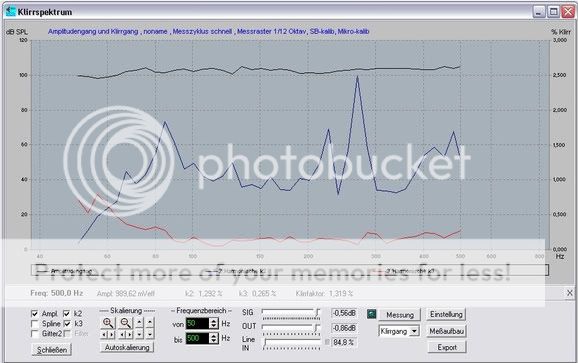
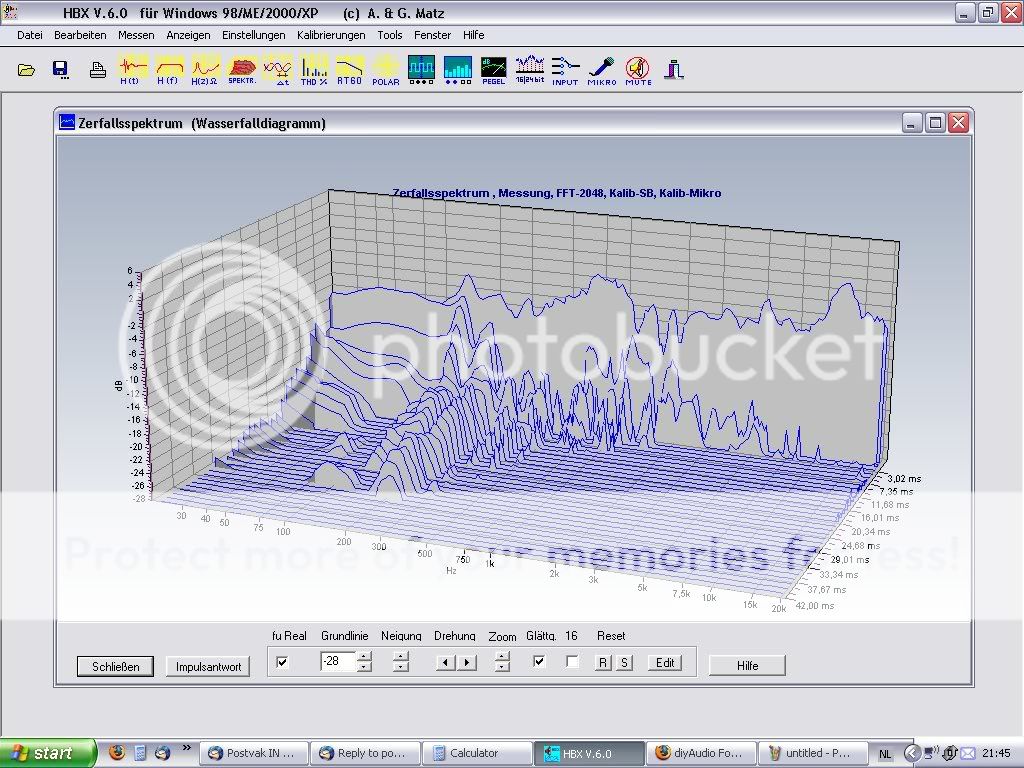
MONACOR INTERNATIONAL : Produktdetailseite
Attachments
Last edited:
No. More like this one, the GedLee Summa:
An externally hosted image should be here but it was not working when we last tested it.
se
How this Summa or B&C 15tbx100 represents (good, with deep bass) closed box design? What I have understood Fs 35 Hz / Qts 0,28 is reflex box parameters and second that all GedLee's design's are meant to be used with subwoofers.
Little you sacrifice of sensitivity you get bass that goes down low.
Last edited:
What do you think of SB Acoustics SB-29NRX75-6 is about 50 litre closed box? Seems (with WinISD sims) that it goes to 25 Hz -10 dB so it may give nice bass with natural room gain. Better it would be if woofer was 12" or 15" but the box size...
- Status
- Not open for further replies.
- Home
- Loudspeakers
- Multi-Way
- What killed off the acoustic-suspension speaker?
